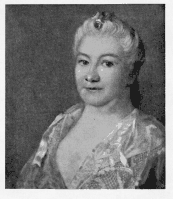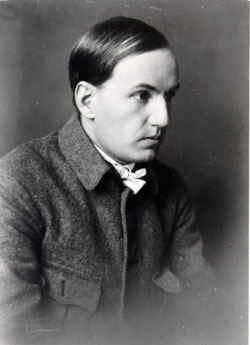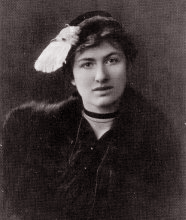The Classics
I’d like to introduce a few of my favorite authors.
Let’s start at the beginning, way back in ancient times.
You’ve probably heard of Sappho. Most people have. Maybe you even think you know what she was about, but contrary to what you’ve heard, there’s no way of knowing whether she was a lesbian or not.
In those days, ‘gay’ poetry was all the vogue. Men wrote love poems about lovely young boys. Not all of those men actually had sex with the boys, but the truth is, if a man wrote love poetry to a young woman, the woman’s family might kill both her and her admirer. Not a good idea. So the men ‘loved’ boys.
Some aristocratic women were privileged enough to get an education and even fewer were allowed to indulge in the arts. Sappho seems to have been one of them. She was the head of a religious college for girls. Or something like that. It’s hard to make comparisons with present day society. In any case, she was in charge of a bunch of teenagers.
If she’d written love poetry about a boy, people might have said she was a whore. She’d risk death. So she wrote about the girls. It was called emulation. To write poetry similar to what men wrote, and preferably to be better than the other poets.
There’s a story told about Sappho, telling how she flung herself off a cliff over unrequited love for a young man. That’s not a true story, most likely. It’s just a retelling of an old fertility myth. Though in most cases, it was the young paramour who died, a sacrifice to the gods. Only he usually came back to life, like the plants grow again in spring, after dying in the autumn.
Corinna
After Sappho, there weren’t that many women writers. There is one, however, that we know a little about. Her name was Corinna, and though there are different opinions about when she lived, most scholars agree that she probably lived in Hellenistic times.
She was from Tanagra, Boetica. Some of her work has survived, which means she was popular and widely read in ancient times. Her work dealt mostly with Boetician myths. In the Augustan era her name was synonymous with talent and learning.
Hedvig Charlotta Nordenflycht 1718-1763

From later eras, I have some other favorite women writers. One of them was Hedvig Charlotta Nordenflycht. She was a Swedish poet living in the 18th century. At an early age, she was persuaded by her father, who had been given a title by the king, to marry an older, unattractive, but very educated and civilized man. Before she was married to him, he died, but he was something of a mentor to her.
She then fell in love with a young priest, and after some years, during which they had to struggle against relatives who were opposed to their union, they married. Unfortunately, her husband died only seven months later.
Hedvig Charlotta went back to using her noble last name, Nordenflycht and moved back to Stockholm, where she became the center of a circle of cultured young people, mostly men. One of them, Johan Fischerstrom, she fell madly in love with, but her feelings weren’t returned. He loved her young friend instead. At the time, Hedvig Charlotta was 43 years old. She felt her life was over, and she threw herself into a lake. Though she was pulled out of the water alive, she succumbed to pneumonia, and died a few days later.
It was a great and tragic loss to the literary community. She had been known as the Nordic Shepherdess, which was a sort of honorary title, alluding to her poetic talents. However, she was ridiculed by some older men from the same literary community. Another Swedish poet, Henrik Kellgren, claimed she was too fat and ugly to deserve her epithet. That used to really annoy me, especially since Kellgren was from my own part of the country. However, I’ve learned that Henrik Kellgren died young. He was actually irritating a number of members of the Swedish cultural establishment. Who knows what he might have been like if he’d been allowed to to live to a ripe old age? After learning that, I decided not to judge him too harshly.
Jane Austen
There’s no escaping Jane Austen. Some people say she wrote trivial, light entertainment. That might be true. After all, I have been told, by a Russian, that the works of Dostoyevski were ‘populistic crap’. However, even today, in the 21st century, people love to know who gets who. Love and relationships are still important. And come, on, let’s be honest, her language was close to perfect.
Some people find her stories tediously straightforward, but if you know a little about history and about women’s situation in her day, you’ll find that she actually put in quite a lot of irony. Back then, a single woman wasn’t worth much. A female writer might make a living, if she was lucky, but she would never be hailed as a prominent member of society. Novels were seen as light reading for women.
Jane Austen didn’t even have her own study where she could focus on her writing. She only had a small portable writing desk, that she had to put away, to make room for domestic activities considered ‘more important’ than her writing.
Jane corresponded with her sister Cassandra, and those letters have been published. So far I haven’t read them, but I’d like to.
In fact, I’ve learned that Jane Austen’s home has been preserved and is open to the public. Frankly, I’m tempted to go there one day to experience her environment.
Writing is never easy, and to work under her conditions must have been even more difficult. Remember that, the next time you pick up one of her books. She’s worthy of all our admiration. Let’s not forget her and other female writers. Their work paved the way for us – today’s aspiring female writers.
Edgar Allan Poe
I do have favorite male writers.:) Edgar Allan Poe is one of them. Again, most people know a bit about him. Some say his poetry is merely beautiful, not very deep. As if beautiful is ‘merely’ anything. I just love The Raven.
He also wrote what is often referred to as the first mystery. It was a short story called the Rue Morgue Murders. He also wrote The Purloined Letter, which can be described as another mystery.
Actually, the first mystery novel was written by Wilkie Collins. It was called The Moon Stone, and incidentally it was written under the influence of opium. Quite a coincidence, since EAP apparently used drugs as well, though probably more alcohol.
EAP also wrote speculative fiction, like The Pit and Pendulum, and The Fall of the House of Usher to name a few.
Oscar Wilde
Here’s another great favorite of mine. Oscar Wilde. He doesn’t really need an introduction. I love The Importance of Being Earnest, The Canterville Ghost, his poems, all his witty sayings. Like Oscar, I’m very partial to hot young men…;) Another thing: watch the movie Wilde. You really ought to see it. Check out Ioan Gruffudd. Wouldn’t you like to be Stephen Fry in *that* scene?;)
Dan Andersson 1888-1920

Dan Andersson is a Swedish poet that I like a lot.
My favorite poem is called The Beggar From Luossa (my translation). Another one is called For My Sister (again, my translation). Dan’s father was a teacher, and Dan himself used to work as a charcoal burner. He died prematurely from cyanide poisoning in a hotel room. A tragic accident that cut short the life of a talented man.
F Scott Fitzgerald
F Scott Fitzgerald (1896-1940) is another favorite writer. I won’t go into any details about his life. That’s not what I find interesting anyway. It’s his writing I admire, not his personality. His language is beautiful and I love the settings for his novels. You see all those rich people in their beautiful homes, yet they can’t find happiness no matter how hard they try. I think that was typical of the era. Post-WWI. The disillusioned generation. On the other hand, later eras have tended to disillusion their generations too.
Here are some quotes by or about Fitzgerald:
“What people are ashamed of usually makes a good story.” – from the Love of the Last Tycoon: A Western, section 15 (first part).
“Then the postman rang, and that day I quit work and ran along the streets, stopping automobiles to tell friends and acquaintances about it– my novel This Side of Paradise was accepted for publication. That week the postman rang and rang, and I paid off my terrible small debts, bought a suit,and woke up every morning with a world of ineffable toploftiness and promise.” -“Early Success,” American Cavalcade (October 1937)
“A writer’s days must be bound each to each by his sense of his life, and Fitzgerald the undergraduate was father of the best in the man and the novelist.” “Fitzgerald was perhaps the last notable writer to affirm the Romantic fantasy, descended from the Renaissance, of personal ambition and heroism, of life committed to, or thrown away for, some ideal of self.” Trilling, Lionel. The Liberal Imagination. New York: Doubleday Anchor, 1953. 235-44.
“All life is just a progression toward, and then a recession from, one phrase — I love you.” -“The Off-Shore Pirate,” The Saturday Evening Post (29 May 1920)
” . . All fine prose is based on the verbs carrying the sentences. Š A line like “The hare limped trembling through the frozen grass,” is so alive that you race through it, scarcely noticing it, yet it has colored the whole poem with its movement ‹ the limping, trembling and freezing is going on before your eyes.” – FSF to Frances Scott Fitzgerald, 1938; qtd. in F. Scott Fitzgerald On Writing, New York: Scribners, 1985, 53.
“Action is character.” – The Notebooks of F. Scott Fitzgerald, ed. Matthew J. Bruccoli. New York and London: Harcourt Brace Jovanovich/Bruccoli Clark, 1978. p. 332
“Poetry is either something that lives like fire inside you — like music to the musician or Marxism to the Communist — or else it is nothing, an empty, formalized bore around which pedants can endlessly drone their notes and explanations.” – FSF to Frances Scott Fitzgerald, 1940; qtd. in F. Scott Fitzgerald On Writing, New York: Scribners, 1985, 56.
“All good writing is swimming under water and holding your breath.” -F. Scott Fitzgerald, from an undated letter to his daughter Scottie.
“People read him now for clues and guidelines, as if by understanding him and his beautiful and damned period, they could see more clearly what’s wrong.” -Smith, Scottie Fitzgerald. “Notes About My Now-Famous Father.” Family Circle (May 1974): 118-20.
“My whole theory of writing I can sum up in one sentence. An author ought to write for the youth of his own generation, the critics of the next and the schoolmasters of ever afterward.” An ambitious, twenty-three-year-old Fitzgerald penned this “Author’s Apology” for his first novel, This Side of Paradise.
Edith Södergran

All of her short life, she kept searching for love, but because of her fragile health she wasn’t very successful. The few men she met appeared to have been disappointments to her. My favorite poem by Edith is called Lucky Cat. It’s haunting in its desperation. You can sense her fear of dying.
Her cat and her dog were a great consolation to her. Another poem tells of a happy relationship between an old woman and her cat.
Here is a short extract from one of her other poems:
‘I long for the country that is not, For everything that is I am tired of desiring.’
(from ‘The Country That Is Not’)
Dorothy Parker (1893-1967)
Here are a few famous quotes:
On learning that Calvin Coolidge was dead she remarked, “How could they tell?”
“Are you Dorothy Parker?” a guest at a party inquired. “Yes, do you mind?”
“I like to have a martini, Two at the very most. After three I’m under the table, After four I’m under my host!”
In a 1933 review of the play “The Lake” starring Katherine Hepburn: “Miss Hepburn runs the gamut of emotions from A to B”
A book review: “He is beyond question a writer of power; and his power lies in his ability to make sex so thoroughly, graphically and aggressively unattractive that one is fairly shaken to ponder how little one has been missing.”
Mrs Parker wrote several beautiful poems, short stories and as seen above, reviews. What I find I can relate most to in her life, apart from the fact that she loved dogs, is that she constantly thought of suicide. Like in that little poem I quoted earlier, she eventually decided to go on living, disillusioned and disappointed in her life. I suppose that was partly because she became successful so early in life. What else could she look forward to?
Sir Arthur Conan Doyle
Again, I don’t think this author needs any introduction. After all, he created one of the most famous amateur detectives of all times, Sherlock Holmes. The books have been turned into numerous movies and tv-series, most recently, Guy Ritchie’s movie from 2009.
What’s really very cool about the classics is that many of them are available for free at Project Gutenberg. I think this will lead to an increase in popularity for classic literature.
